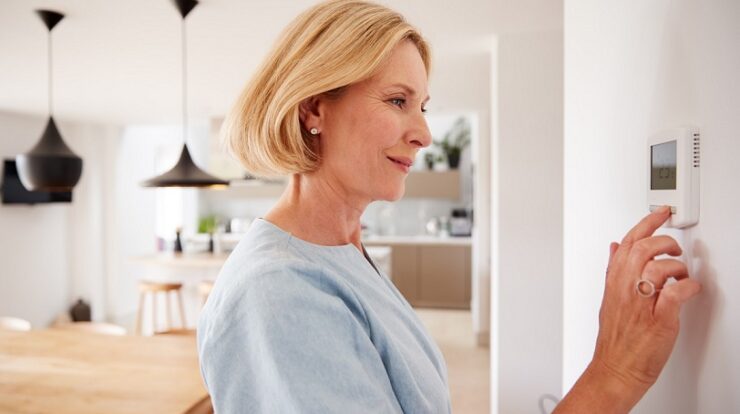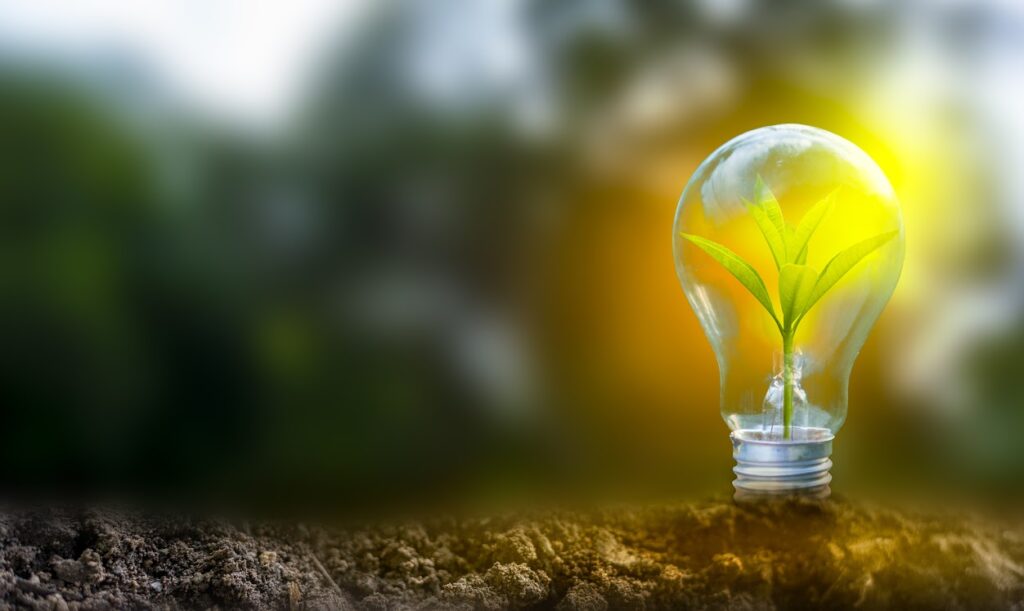
You’ve probably heard about water conservation many times, and most people understand its concept and importance. However, it’s not always the same for energy conservation. Even today, many people are still wondering what energy conservation is and how crucial it is for preserving the environment.
What is energy conservation?
To begin with, energy conservation is the act of consciously reducing your energy consumption at home, work, or everywhere you go. It involves changing your habits or behaviors to practice using less energy. It’s also about utilizing energy-efficient appliances to reduce energy usage. Energy conservation is a massive part of living a sustainable life along with water conservation.
Furthermore, conserving energy is more than just trying to lower your energy bills or electricity costs. Keep in mind that if humanity continues to waste and increase their energy usage, sooner or later, the planet will experience negative consequences of climate change that’ll affect all living things. Examples of climate change brought by energy wastage are frequent extreme weather events and constant temperature increases (global warming).
Why is energy conservation important?
As stated above, energy conservation is important for the community and the whole planet. By conserving energy, you’re reducing your carbon footprint and impact on the environment.
Additionally, here are the economic and environmental benefits of conserving energy:
- Reduce electricity bills
This is probably the main reason some people cut off their energy usage. Although it’s beneficial, there are still more benefits when conserving energy other than reducing your bills.
- Fewer power plants
Power plants are facilities responsible for generating electricity from the primary energy source. While it’s highly functional, it contributes significant amounts of noise, causing noise pollution, and could be a safety hazard for nearby residents. If the entire population learns to conserve energy, fewer power plants shall be needed and built.
- Cut down carbon pollution and prevent greenhouse emissions
Too much energy usage can lead to carbon pollution. That’s because using appliances, vehicles, and other machines that require large amounts of energy will only emit more carbon dioxide emissions, which is harmful to the environment. Furthermore, greenhouse gases are among the primary causes of climate change and global warming. These gases are emitted every time industrial facilities burn fossil fuels to create energy. Promoting energy conservation through energy-efficient appliances and machines can help reduce carbon pollution and preserve the planet.
- Preserve finite energy resources
Although some energy resources are limitless (high-altitude winds, deep heat, wave farms), some resources are finite, such as uranium, coal, and oil. These energy resources are non-renewable since the planet cannot produce them again. You can help lessen energy usage through energy conservation and prevent these energy resources from running out.
- Protect the planet and wildlife
Less consumption of energy also helps protect the planet and its wildlife. With less energy usage, the less air pollution you can cause brought by vehicles, power stations, appliances, and machines.
- Promote human health
Pollution brought by energy wastage can cause several diseases and medical conditions to humans, such as heart attack, asthma, and lung cancer. Energy conservation may help lessen the risk of these diseases and protect humans from unnecessary sickness and health care expenses.
Overall, energy conservation can improve your quality of life. When everyone cooperates in reducing their energy consumption, the risk of pollution and health sickness will be reduced. You also get to save money by lowering your electricity expenses.
How can homeowners conserve energy at home?
Households and homeowners are among the leading contributors to harmful greenhouse gases due to energy wastage. So, the first step to practicing energy conservation is in your own house. This guide will show you how to practice energy conservation at home:
1. Invest in a portable solar charger
You’ve probably heard about solar chargers and how they’re highly functional when it comes to conserving energy. A solar charger gets its power from the sun, which is why it’s often placed on rooftops for maximum sun exposure. With this device, you can use your electronics, personal devices, and small appliances without consuming electricity or energy.
However, since huge solar chargers can be pretty expensive, you can invest in a portable solar charger instead. It may be relatively smaller, but it still provides the same benefits, including energy conservation.
2. Open your windows and curtains
Instead of cranking up your air conditioner during the summer months, conserve energy by opening your windows and curtains. This way, you can naturally cool your home without using any energy or electricity which is practiced by tenants in apartments near Lansing. This option is perfect specifically during the spring season when temperatures are mild.
Meanwhile, you can open the curtains during colder months to let the natural light seep in and warm up your interiors. Just make sure you keep the windows close to prevent the cold breeze from entering.
3. Use ceiling fans
If cooling your home with open windows isn’t enough, you can buy ceiling fans instead. Ceiling fans can maintain coolness and reduce hot temperatures without consuming too much energy and raising your electric bills.
4. Cook outside
If possible, try to cook outside more often, especially on warmer spring days. You can save much energy from using indoor ovens and switching up the air conditioner since cooking outside will keep the heat out of your house.
5. Bring in sunlight
During the daytime, instead of turning on the lights, open your doors and windows and utilize the sunlight to illuminate your house. Other than brightening your home and conserving energy, the sunlight can also lighten up your decorations, make your walls brighter, and improve your interior’s overall aesthetic and atmosphere.
6. Switch to energy-efficient electronics and appliances
Nowadays, the use of electronics and appliances is already part of your day-to-day routine. So, reducing energy usage can be more challenging, especially for people who’ve grown dependent on using these things. Thankfully, most modern electronics and appliances today are innovated to be energy-efficient, helping consumers and users reduce their carbon footprints, making energy conservation easier and more possible.
With that said, take time to inspect your appliances and electronics at home and replace the older ones with energy-efficient models. Whether it’s your coffee maker, dishwasher, or air conditioner, using energy-efficient appliances can greatly help conserve energy and lower your electricity bills. The same goes for your electronics like televisions, computers, printers, gaming devices, and other things commonly used by your family members.
7. Make use of smart assistants
Another innovation brought by technology that could help you conserve energy is smart assistants. Despite being away from home, you can use smart assistants to automate and control your appliances. This way, you can quickly check your devices and turn them off remotely when you’re away, helping you save energy.
8. Routinely check your appliances and electronics
On the other hand, if automating your appliances is quite costly, you can go the cheaper way, which is to routinely check your household items every day. Whether you’re going out for a bit or going to sleep, you need to check your appliances from time to time to ensure they’re off when not in use.
9. Unplug chargers and devices when not used
It’s common for many people to leave their electronics and chargers plugged despite not being used, thinking it’s not consuming any energy. Unfortunately, plugged chargers will still continuously draw power even when not used, eventually elevating your energy consumption. As much as possible, unplug chargers right after using them to conserve energy.
10. Only wash full loads of laundry and dishes
Another energy-wasting habit some people do at home is washing dishes or doing the laundry half-full or less. However, doing this will only waste much energy and water at the same time.
Keep in mind that dishwashers and washing machines are originally designed to function and run with full loads. So, start washing your dishes and clothes in full loads to cut off your energy usage.
11. Practice air-drying clothes or dishes
Sometimes, the best way to conserve energy is not to use it at all. So, after washing your clothes or dishes, make it a habit to air-dry them instead of using the dryer machine or the dishwasher’s drying cycle. The artificial drying process consumes the most energy compared to the washing and rinsing process.
As a solution, go the old-fashion way and hang your clothes on the clothesline after doing the laundry. Meanwhile, you can air-dry your dishes or wipe them with a clean cloth to keep them dry without using a single kilowatt of electricity.
12. Maintain your air conditioner
If you’re using an air conditioner at home, make sure to keep up with its regular maintenance. An air conditioner with dirty filters or malfunctioning parts will only cause the device to work twice as hard in cooling the room, consuming more energy.
If possible, have your air conditioner regularly checked by a professional for proper diagnosis, thorough cleaning, and ensure your air conditioner is performing at optimal levels.
13. Seal air leaks
Air leaks on your windows, doors, or any holes that allow water and electricity to escape may boost up your energy wastage. So, see that all air leaks around the house are properly sealed to save up around 5% to 30% of energy.
14. Turn off lights and electronics when not used
Some of you may forget to turn off and leave your televisions or computers open when you’re doing other chores. Others may also fail to turn off bedroom or bathroom lights after using the room. These small slips can significantly increase your energy consumption. You can put up some signages around the house to remind everyone to turn off the lights or appliances when not in use.
Takeaway
Ultimately, conserving energy at home is easy, as long as everyone in the household cooperates in adjusting your habits and if you’re using energy-efficient devices. You can also teach your children to practice energy conservation habits to help them adapt and be more responsible at an early age.
Remember, by conserving energy, not only are you reducing your electric bills, but you’re also preserving the environment for future generations to come.



